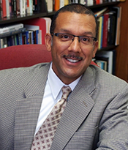July 4 should be a day to celebrate the birth of America, a day to honor a generation who pledged to each other their lives, fortunes, and sacred honor in defense of liberty and equality. But America is under attack. Our nation stands accused of being founded on a lie and irredeemably tainted by white supremacy. Has the Spirit of ’76 become a demon to be exorcised rather than an expression of “the better angels of our nature,” as Abraham Lincoln once observed?
But even America’s greatest defender has been weighed and found wanting. Nikole Hannah-Jones, Pulitzer-Prize curator of the 1619 Project, sees no difference between Lincoln and Chief Justice Roger B. Taney, who declared in the 1857 Dred Scott case that black people “had no rights which the white man was bound to respect.” How does this square with Lincoln’s critique of Taney’s ruling and Lincoln’s abiding conviction that his “ancient faith” teaches that “there can be no moral right in connection with one man’s making a slave of another”?
As the attack on the founders moved from words to deeds, with statues of Washington and now Lincoln subject to vandalism and removal, Prof. Charles Kesler called the nation’s public disorder “the 1619 Riots.” Hannah-Jones thanked him for the compliment, tweeting that it was “an honor” to be associated with the national unrest that had produced the toppling of monuments to the nation’s founders.
To address the crisis of his day, Lincoln harkened back to the founders to call a polarized nation back to the path of freedom.
Lincoln understood that to enjoy the equal right to “life, liberty, and the pursuit of happiness” required the enforcement of laws—laws issued by proper authorities based upon the consent of the governed. Lincoln believed that the rule of law was the safeguard of the rights of person and property, and reminds us: “Let not him who is houseless pull down the house of another; but let him labor diligently and build one for himself, thus by example assuring that his own shall be safe from violence when built.”
Some have argued, “You can replace property, but you can’t replace a life,” justifying the riots as a legitimate expression of a community whose voices remain unheard. But it is precisely the rule of law that is so desperately needed by those same communities. The reforms they seek in policing and greater investment in their communities will come only as the result of the sober processes of civil government, not the excesses of mobs or the depredations of gangs that continue to wreak havoc in the poorer neighborhoods of America.
The founders taught Lincoln that “a majority, held in restraint by constitutional checks, and limitations, and always changing easily, with deliberate changes of popular opinions and sentiments, is the only true sovereign of a free people.” When Democrat James Buchanan was elected president in 1856, Republicans did not preach “Resistance!” and “Not my president!” They respected Buchanan’s election, but redoubled their efforts to get Republicans into office at the state and national level. Four years later, they elected Lincoln.
Southern Democrats lost, attempted to a new nation by seceding. Lincoln disagreed, believing that republics required good winners and good losers. He secession “the essence of anarchy.” Republicans had been good losers, now Democrats could profit from their example. Government by consent of the governed could afford no less.
The self-appointed guardians of today’s public square only invite a battle of the bullhorns—a poor substitute for the consent that Lincoln called “the sheet anchor of American republicanism.” Just ask Minneapolis Mayor Jacob Frey, who was fortunate to exit a crowd after he refused to commit to abolishing the police. This is a far cry from “the cool and deliberate sense of the community” that James Madison wrote about in the Federalist Papers.
The question is not, does Lincoln still speak to America? Rather, will Americans listen? This July 4, we should reflect upon Lincoln’s words, for they inspire us to reflect upon the founders’ words. In so doing, we could then remind ourselves of why America remains “the last best hope of earth.”
Photo credit: By Jeff Kubina – Lincoln Memorial, CC BY-SA 2.0, Link
 Lucas E. Morel is the John K. Boardman Professor of Politics at Washington and Lee University and author of Lincoln and the American Founding, recently published by Southern Illinois University Press.
Lucas E. Morel is the John K. Boardman Professor of Politics at Washington and Lee University and author of Lincoln and the American Founding, recently published by Southern Illinois University Press.
 CURE News and Clergy Blog News and Commentary for Christians
CURE News and Clergy Blog News and Commentary for Christians



